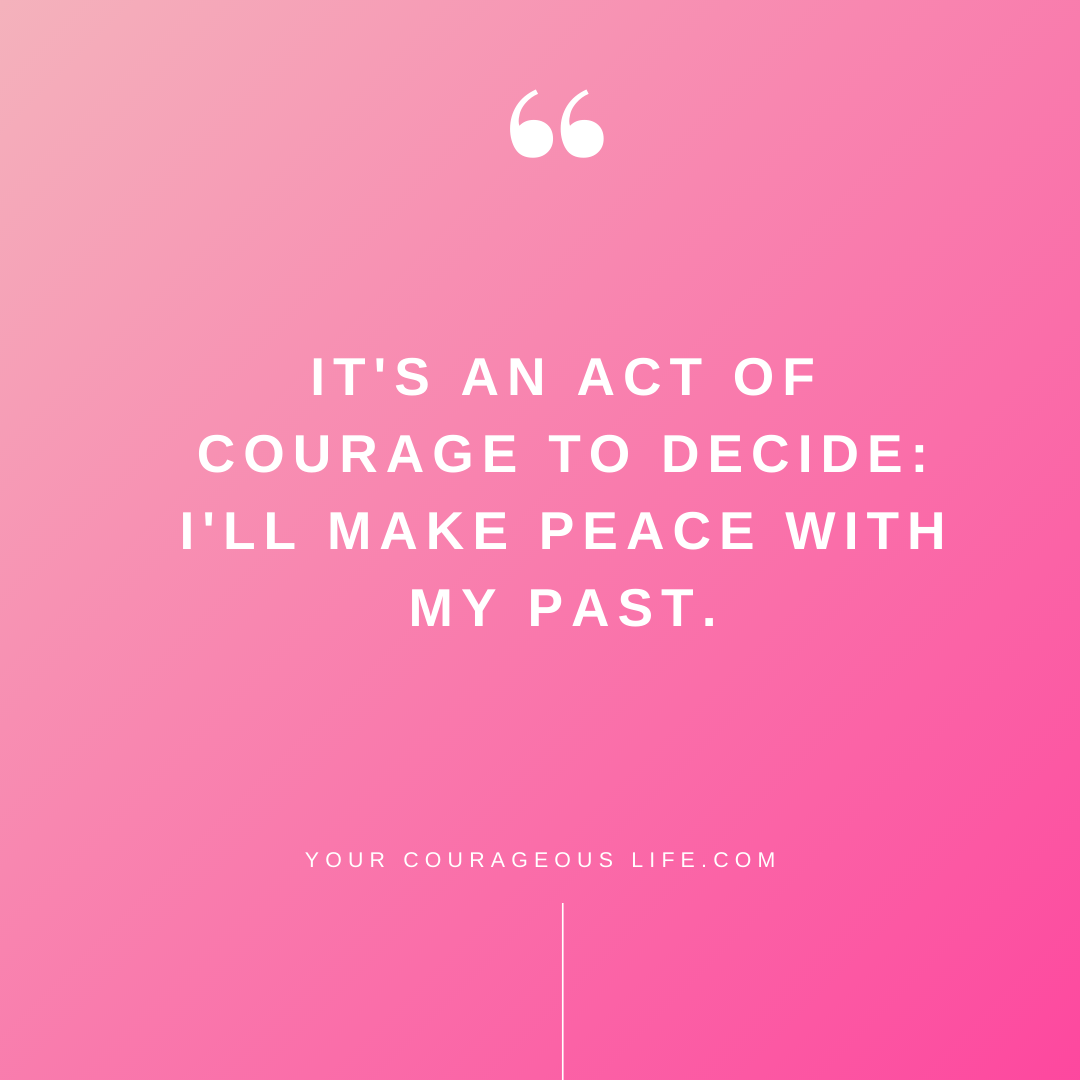How to make peace with the past
When people start getting into self-help, inevitably they examine their family of origin. Where did I learn these patterns? Who taught me to be afraid? Why do I keep doing this thing, over and over, even when I try to stop?
“My mother always told me to be realistic, so that’s why I have so much trouble taking risks.”
“My father left when I was two, so that’s why I don’t trust men.”
“I was abandoned and put up for adoption, so that’s why I can’t form deep, personal connections.”
Here is the duality to hold:
The people who raised you absolutely did instill belief systems and habits that affect you in the present day.
And–
You deserve better than a life spent blaming your parents for your current-day problems.
Important: this is nuanced. You really do need to hold both of these concepts, at the same time. Otherwise, people tend to fall into two polarizing camps.
Camp Parents Done Me Wrong endlessly investigates the past and spends untold hours and thousands of dollars with helping professionals trying to figure out the whys of it all–and even if they say they no longer blame their parents, a little digging usually reveals that yeah, they totally do. The sadness lays at someone else’s feet. The anger isn’t usually far behind.
But in the other camp, Camp Get Over It, there’s a lack of compassion for the past. They look at anyone processing past issues and think, “Why can’t they just get over it and move on with their lives?” All the while, people who rigidly spend time in Camp Get Over It often push their own personal pain farther down, making it harder to directly access, and the pain leaks out in small, subtle ways such as an inability to deeply connect with people, or low-grade anxiety or irritation.
Both camps are using a defense. One is using the defense of victim, and the other is using the defense of putting up a shit-ton of armor. Victims are feeling everything (and feeling decimated by the overwhelm of what they feel), and people wearing armor are desperately trying not to feel (and living half a life, in the process).
Getting Confrontational
When someone is squarely in one camp, any helping professional who confronts their old pattern will be suspect. Camp Parents Done Me Wrong will feel betrayed and furious with a therapist, coach, or friend who suggests that they are in charge of their lives, now, and are empowered to do something about it.
They’ll feel betrayed because after all that time being listened to and understood, now someone is suggesting that they take an action that all past experience has suggested really isn’t possible. Take responsibility for my life? After all that I’ve been through? How could you suggest that, knowing what you know about my past?
Camp Get Over It will use every defense in the book to avoid feeling their feelings and examining the past. I’m not into this woo-woo stuff. The past is the past, so leave it be. What’s the point of bringing up feelings about something that happened years ago? Camp Get Over It usually only ends up in therapy because their partner dragged them to it when the relationship is on the brink of divorce, or substance abuse has threatened a career, or when life throws a curveball they can’t control and suddenly they are haunting the hallways of their houses every night with insomnia.
The Power of “And”
You need to know why your past influences your current patterns, AND you need to take responsibility for making different choices.
You need to feel your feelings about your past, AND you need to cut the shit and be intentional–stop ruminating on what happened to you, years ago.
It’s not an either-or equation when you’re figuring out how to make peace with the past . Knowing why you feel fear, hesitate to take risks, and all of the Stories that play in the background when you make a decision is valuable information. Seeing the patterns clearly helps you to recognize when you’re about to go back into one, purely by default.
Just take care that you add the “and.” You understand what happened then, AND you’re choosing differently, now.
Right here, right now, you’re an adult. You’re probably not living underneath a parental roof, anymore. You decide how you spend your money, what you put in your mouth, whether or not to take that drug, whether or not to stay in the safe job or strike it out on your own.
In other words, you’ve got the keys to your own freedom. Not your parents. Not your past. Not the stuff that happened to you, then.
You’ve got the keys. You’re the only one who can use them to unlock yourself from whatever you don’t like. So do it.

